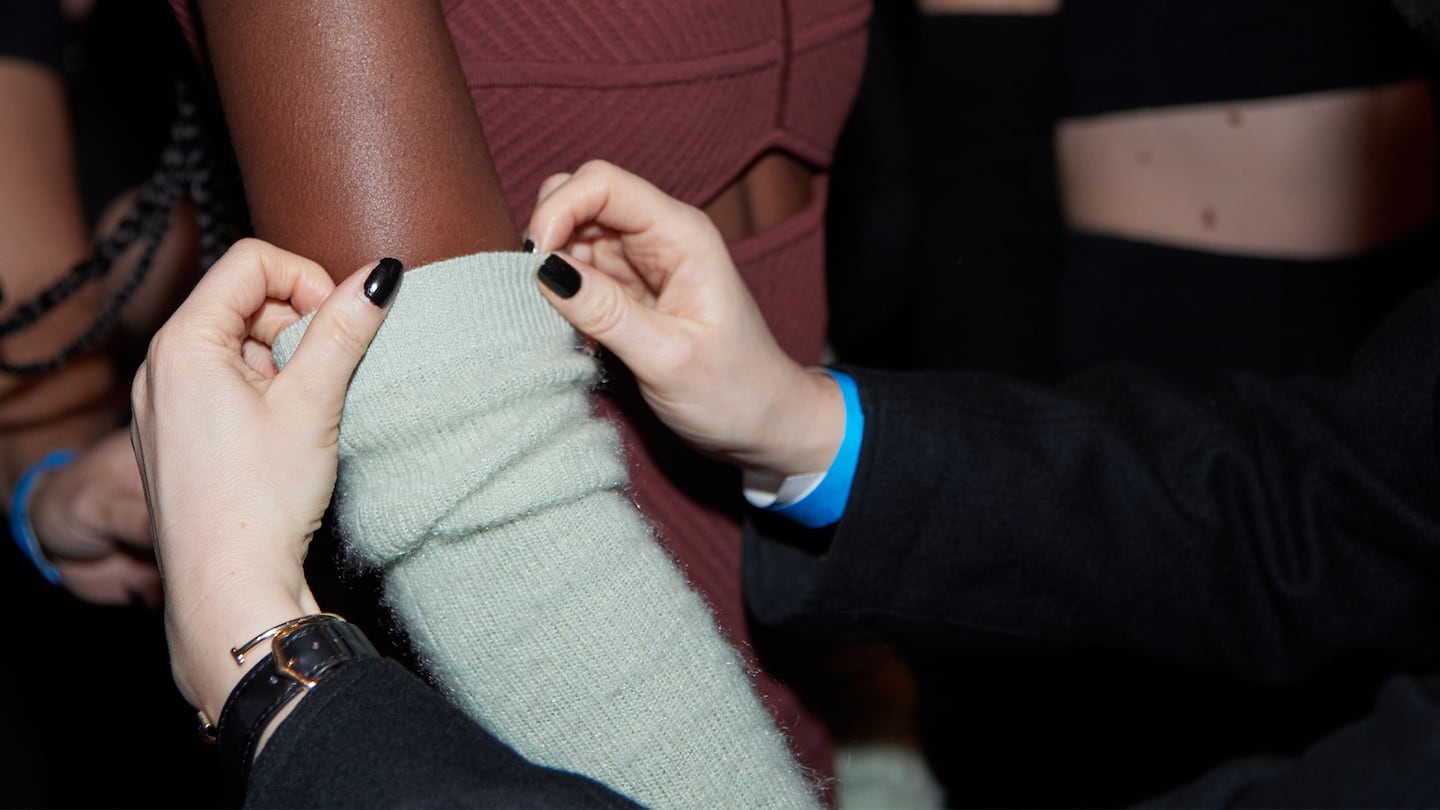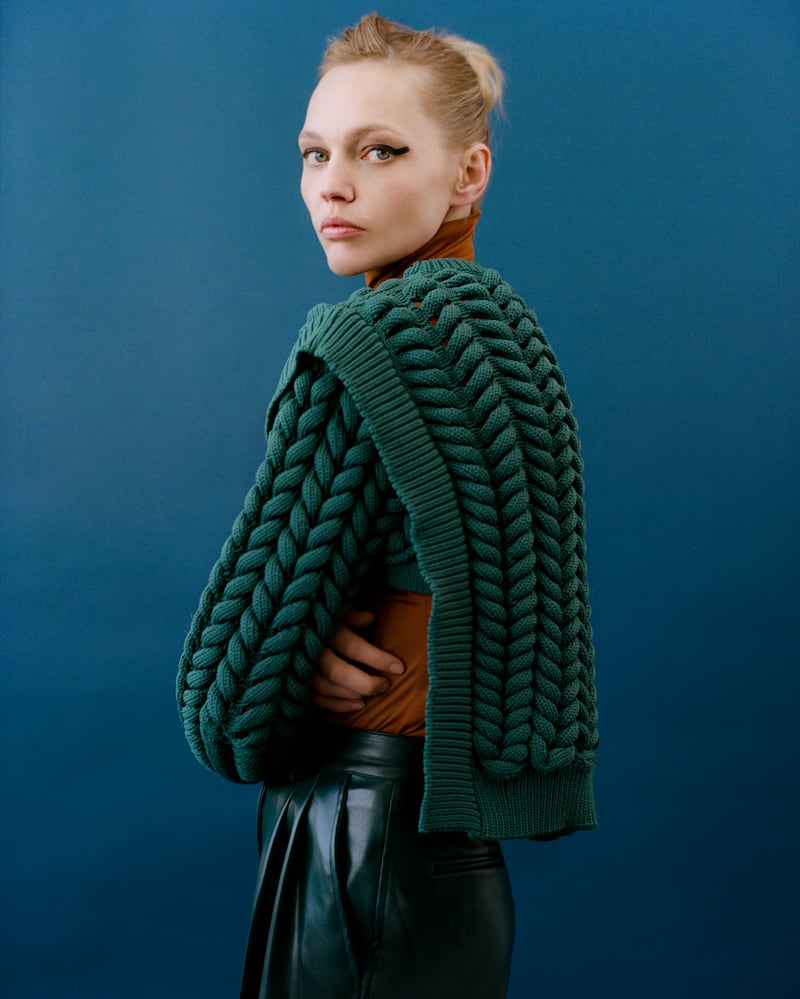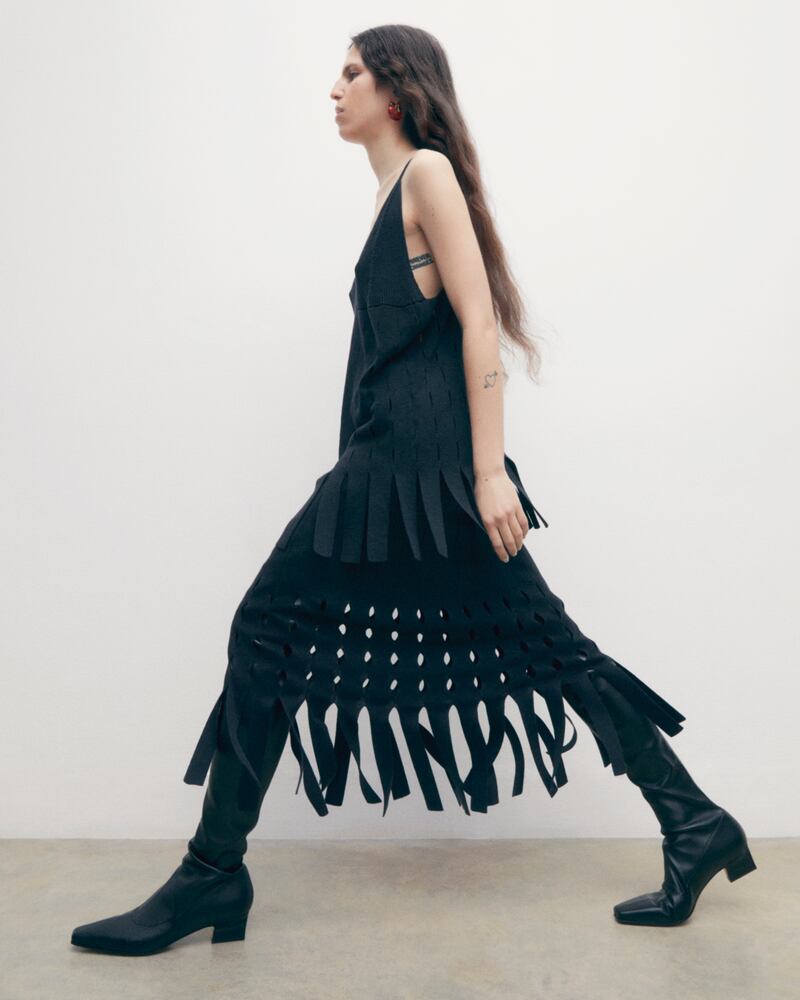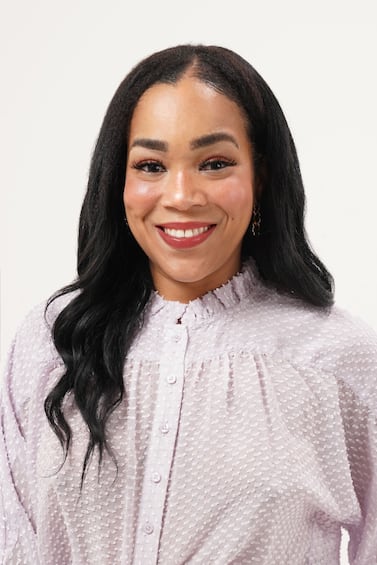
Agenda-setting intelligence, analysis and advice for the global fashion community.

Agenda-setting intelligence, analysis and advice for the global fashion community.

Christian Juul Nielsen may have just had his busiest New York Fashion Week.
The knitwear designer, whose resumé includes stints at Christian Dior and Oscar de La Renta — under the tutelage of fashion royalty like Raf Simons and John Galliano — debuted his Autumn/Winter 2022 collection for Hervé Léger at the Soho Grand Hotel on Feb. 11. Two days later, he held court at New York’s Spring Studio to show off the latest collection for Aknvas, the contemporary unisex brand he launched in 2019.
The centrepiece for both collections: knitwear.
While knitwear has always been a wardrobe staple, a confluence of factors, including the pandemic’s leisurewear boom and fashion’s rising sustainability ambitions have pushed knitwear designers to the front of the industry’s pecking order. Across the US and UK, the amount of sold-out luxury knitwear items across brands and retailers increased 45 percent year over year over the past 12 months, according to retail analytics platform Edited.
ADVERTISEMENT
There’s just one hitch: there are only so many designers working knitwear at the level required to produce a collection that stands out at fashion week or on the rack at Bergdorf Goodman. Creating distinctive knitwear pieces requires deep knowledge of materials like wool and cashmere, plus command of advanced stitching techniques and complicated machinery. Such expertise is rare, particularly in the US.
“Knitwear designers need to be extremely technical, in the sense that they have to not only be able to design — it’s not only about shapes — but also be able to [work with] the yarns and [make] swatches,” said Valentina Maggi, director of the design practice at Floriane de Saint Pierre & Associés, a management consultancy that helps fashion firms in New York, Milan and Paris recruit talent.
For instance, to update Hervé Léger’s iconic bandage dress, Nielsen used a process that involved a double knit faced with mohair, a protein fibre made from the hair of an angora goat, and backed with a layer of rayon material for a “slick hand feel” on the inside of the garment. (Rayon is a semi-synthetic fibre typically derived from wood pulp.)
“I really try to go intellectually into the process of development and really think about ‘how can I create something that hasn’t been made before?’” he said.

Building a Close-Knit Team
The most crucial hire for companies looking to raise their knitwear game is a design director who can create “wow” pieces for fashion week and wardrobe basics — and nurture relationships with fabrics mills, Maggi said.
“This is something that we are asked all the time [by luxury brands]… they need the design director to be able to talk to the Italian mills, work with those mills, and go there to work with the people to develop the swatches,” she said.
Although designers aren’t typically stitching the final product themselves, they need a working knowledge of knitwear machinery so that they can “understand the outcome” when sharing an idea with a factory team, said Sonia Veroni, founder of the Modateca Deanna International Documentation Center for Fashion in Italy and director of its Creative Knitwear Design Master programme.
ADVERTISEMENT
“You have to know your yarns and be able to express yourself and communicate your vision,” she said.
Aspiring fashion designers are taking an interest in knitwear in response to the surging trend, said Veroni, whose school graduated its largest class, 17 students, in 2021.
Gabby Hirata, president of Diane Von Furstenberg, described recruiting knitwear designers as “like a marriage process.” After taking the helm of the brand in January 2020, she saw knitwear as key to countering the annual “cliff drop” in sales of the label’s signature wrap dresses in colder months. Today, knitwear makes up 35 percent of DVF designs, up from about 5 to 8 percent a year ago. Knitwear also drives the majority of full-price sales at the brand, Hirata said.
Hirata hired a seven-person team in Beijing — including two knitwear designers as well as technical design and fitting “management” — and placed them in an office right next to a factory the brand was already working with.
“I’m very prone to building the team next to the factory because that’s how you get the quality and attitude right,” she said.
More than before, Hirata said she needs to “empower” knitwear designers to take the reins on key components of the product development process.
“I trust my knitwear designers in Beijing to even mock up the print on the given season,” she said. “I’ll even empower him to tune the colour of the print to the knit.”
Sustainable Stitching
ADVERTISEMENT
Many fashion companies rely on freelancers to help them meet their knitwear ambitions and that may remain a viable strategy even as the category enjoys new revenue momentum, said Maggi.
Giulia Piersanti currently works on a freelance basis as a womens and mens knitwear designer at Céline and has earned her chops freelancing for luxury fashion labels like Balenciaga, Fendi and Lanvin. The biggest change to her role as the category explodes is the level of empowerment she has been given from brands she currently works with to think more creatively about areas like sustainability, she said.
“The very big brands, they have a huge responsibility to follow new sustainability guidelines and they want us to go in that direction, and they’re grooming us to do that… which is really nice, because before you had to do it on your own,” said Piersanti.
Aeron, the luxury women’s brand founded in Budapest, Hungary by Eszter Áron, debuted an Autumn/Winter collection for New York Fashion Week that’s nearly 70 percent knitwear (compared with 30 percent in past seasons).
The brand’s in-house design team — which includes Áron and her ateliers — has had to collaborate with outside suppliers more closely than in the past as it introduces more materials like yarn and EscoVero, a type of viscose that is derived from sustainably harvested wood and pulp.

“It’s very special knitwear because it’s not just that you’re designing the silhouette or the concept, you’re designing the fabric, the knitting technique and the thickness and so it’s like [our designers are] doing [two] jobs at the same time,” she said.
The heightened focus on knitwear is part of push — which forced the brand to remove all polyester from its products — to work with “more responsible fabrics” and continue to create the “staple pieces” the company is known for, said Áron, who is also the brand’s creative director.
Its entire design team is based in Hungary but as it looks to hire more knitwear designers, it has introduced a programme that allows designers from all over the world to apply, she said.
“We’re going to collaborate with different people as consultants and we’ll see ‘what are the opportunities?’” said Áron.
Discover 200+ live roles in fashion design — and opportunities in knitwear — on BoF Careers today.
 Opens in new window
Opens in new windowThe French luxury house has confirmed that it has acquired a majority stake in the Italian firm, which it has worked with for 25 years. The value of
The first crop of NYFW shows capitalised on a commercial boom, but where were the new ideas?

Sheena Butler-Young is Senior Correspondent at The Business of Fashion. She is based in New York and covers workplace, talent and issues surrounding diversity and inclusion.
Discover the most exciting career opportunities now available on BoF Careers — including jobs from Burberry, Citizens of Humanity and Polène.
Fashion schools have to play the long game in recruiting industry professionals who meet the high expectations of today’s students — from mentorship to staying on top of industry trends.
In Paris, leaders in talent acquisition from Chanel, Christian Dior Couture, Coty, Kering, Louis Vuitton, Rimowa and Saint Laurent among many others, attended an exclusive presentation and networking event at Hôtel Plaza Athénée.
BoF Careers provides essential sector insights for fashion creatives this month, to help you decode fashion’s creative landscape.